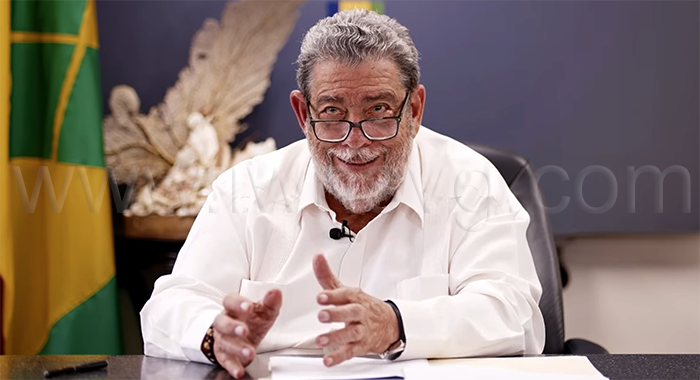Prime Minister Ralph Gonsalves has emphasised the roles of residents of St. Vincent and the Grenadines in ensuring that they are ready for the hurricane season, even as the government plays its part.
Gonsalves reminded residents of the country of their obligation to keep themselves and their facilities informed
“I know there’s a lot of information out there, and I know you spend a lot of time on Facebook. Some people say commess (gossip) book, but you don’t spend enough time, I’m suggesting, listening to some serious things,” the prime minister said.
“So, you have to listen to the bulletins from the Met Services,” he said.
Gonsalves urged the population to get their information from reputable sources only, noting that the official weather information comes from the Meteorological Services of the Government of St. Vincent and the Grenadines.
“Secondly, you have to know your own vulnerability to hazards,” he said, noting that they include strong winds, heavy rainfall and rough seas.
“You have your house in seawater mouth, you have to be mindful of that,” he said, adding that households must ensure that the galvanised sheets on their roofs are fastened properly.
“You have to address your own vulnerability and the state has assistance to give you. For instance, if you live near to a river or near the sea, how are you affected?
“You live on a hillside prone to landslides? Can your home withstand a storm? You have to ask yourself these questions, and remember that God helps those who help themselves.”
The prime minister also urged that people to plan for themselves and their families around what they think reasonably could impact them.
“Where are you going to go before the storm or the heavy rains?” he said. “Are you going to stay with friends or family?
“If not, know where your nearest emergency shelter is and make early preparations to go to the shelter with your own supplies to last you and your family for the first couple of days.”
He said that although the government has regional warehouses, first responders cannot mobilise until the all-clear is given, and even then, might not be able to get to shelters immediately.
“They may have road blockages. That’s why they say, do your best to see if you could have a couple days’ food and water if you’re going to the shelter.”
He also urged that people factor in vulnerable members of their households in their plans.
“Do not leave the old people or those who have physical or mental challenges behind. Remember to have enough medication and food supply, as these may not be immediately available following the impact of the storm or the hurricane…”
Regional forecasters have predicted a “potentially intense but erratic” 2025 Atlantic hurricane season.
The Barbados-based Caribbean Institute for Meteorology and Hydrology (CIMH) said its forecasters have a 70% confidence in their forecast that there will be 19 named storms, with nine becoming hurricanes and four of them major hurricanes, but noted that the forecast will be updated later in the hurricane season.
Gonsalves told Vincentians to be vigilant, regardless of the predictions.
“And I, as I remind you each year, regardless of the predictions, we must remain vigilant as it is highly probable that our islands of St. Vincent and the Grenadines probable that we will be affected by a storm, by a hurricane, heavy rainfall, strong winds and a storm surge, or storm surges,” the prime minister said.
“And we are to learn from the impacts of Beryl and be prepared,” he said, referring to the category 4 hurricane which impacted the country on July 1, resulting in “a number close to 1 billion Eastern Caribbean dollars” in loss and damage.






